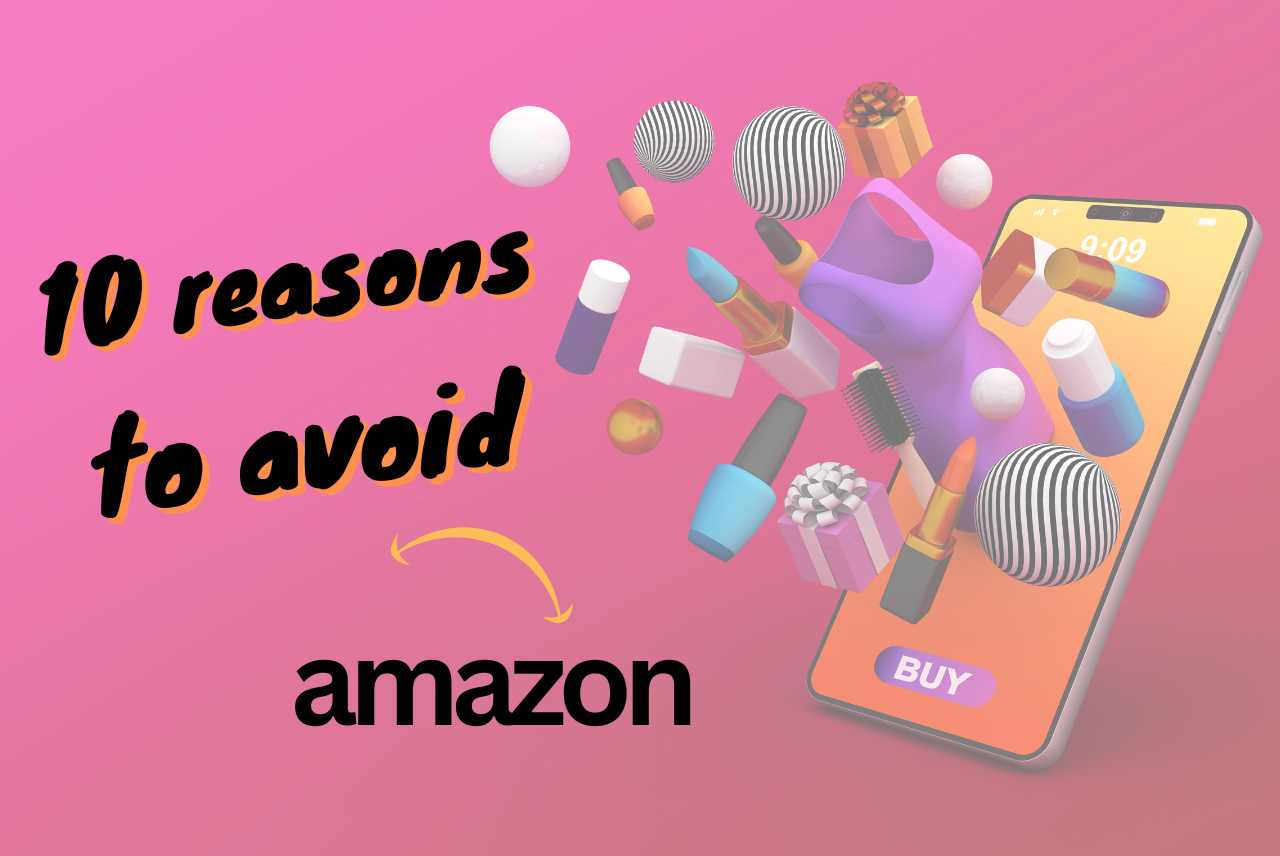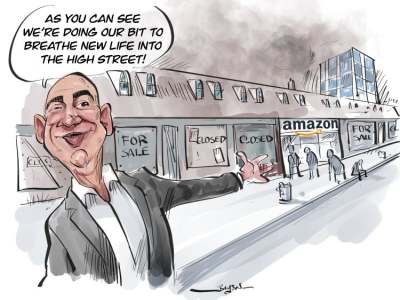Why avoid Amazon?
1. Amazon is an aggressive tax avoider.
In 2021, the UK lost around half a billion pounds from Amazon’s tax avoidance, according to an investigation by Ethical Consumer. This amount could have paid for payments to the most vulnerable to help with fuel costs, pay rises for nurses, or insulating homes of pensioners.
According to the most recent figures, because of its aggressive tax avoidance strategies, Amazon will likely pay around £22m - just 4.2% of the £500m that might be expected in the UK.
And its tax avoidance isn't only affecting the UK: globally the gap between what Amazon reports it is paying in tax and the actual cash it's handing over to authorities amounts to $6 billion in the decade between 2012-2021, according to the campaign organisation Fair Tax Mark.
Ethical Consumer continues to call for a boycott of Amazon over its outrageous tax avoidance.
2. Amazon has violated workers’ rights for years.
Nine-hour days standing, seemingly impossible targets, having to pee in a bottle for fear of taking breaks – these are all allegations from Amazon workers.
In recent years, the company has faced multiple fines in the US for putting workers’ safety at risk by placing punitive production targets on them. Workers have been found to be at greater risk of musculoskeletal disorders and back injuries from having to lift multiple heavy parcels and work long hours to meet quotas, according to inspectors.
Similar conditions have been reported in the UK. In October 2020, TUC released a report that found that employees in Amazon warehouses worked 55 hour weeks and 10 hour days on average, were expected to pack around 300 items per hour (1 every 12 seconds), and were harassed, disciplined or fired if they failed to meet their targets. Workers felt unable to take breaks or visit the bathroom and sometimes had to urinate in bottles.
3. Amazon workers say abuse comes at a high price for workers in the cost of living crisis.
Amazon workers have led protests against the company’s appalling workers’ rights.
In November 2022, Amazon workers and activists from all over the globe took action against Amazon’s atrocious conditions as part of #MakeAmazonPay Black Friday protests. The campaign says,
"real wages are going down while the corporation rakes in record revenue - $121bn for the second quarter of 2022 - and doubles down on its union-busting tactics."
4. Amazon sells its services to fossil fuel companies.
Amazon offers its high tech services to help fossil fuel companies find more oil and gas.
In August 2022, Bloomberg reported that Amazon was a "quieter beneficiary" of the boom in oil and gas prices, and was, for example, "helping drillers run simulations to maximize how much oil they can pump from existing wells. Amazon was said to have stated that it was making "oil companies more efficient" as "part of their sustainability work".
Amazon has previously been accused of ‘aggressively courting’ the industry and offering machine learning and AI technologies to enable fossil fuel extraction at a time when “it is imperative most fossil fuels be left in the ground if we are to avoid severe climate disruption”.
Amazon was also found to have sponsored a 2020 event held by the Competitive Enterprise Institute, a think tank well known for spreading climate denial misinformation.
5. Amazon has a poor climate record.
In 2020, Amazon announced its target to be carbon neutral by 2040. Yet, in 2021 its emissions rose by 18%, despite only including 1% of all product sales.
The company reported its emissions at over 70 million tons of CO2e in 2021, which is equivalent to over 70 million return passenger flights from London to New York.
It is not only on climate targets where Amazon falls down. In April 2021, a video was published which showed Amazon’s Dunfermline warehouse destroying over 124,000 items of unsold stock. Amazon destroys products that are outdated or have been returned, likely because to keep it stored is worth less than trashing it and bringing new stuff in.










